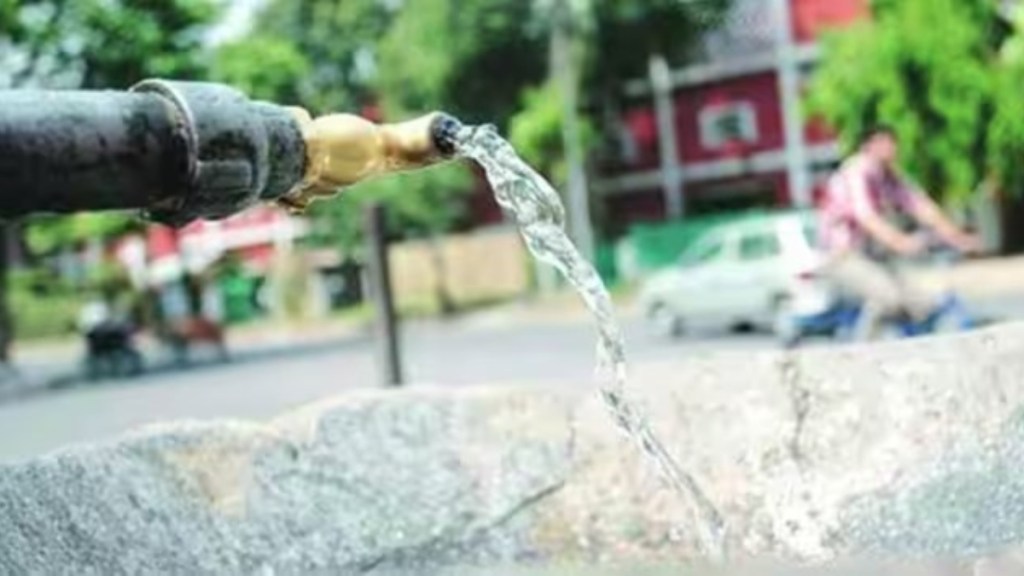By Advait Kumar
The water-tech sector is undergoing tremendous transformations. With the addition of Artificial Intelligence and sustainability, the management of water is getting smarter and more effective. In such a world, facing water scarcity, these technologies have much hope for a greener future. AI and sustainable practices will become indispensable for efficient and environmentally sound water systems by 2025.
The Problem: Outdated Systems That Waste Water
In today’s world, water wastage continues to be a worrying concern. For instance, in places such as Delhi, around 40% of the potable water loses its value due to wastage even before it reaches the end user.
We rely on Water Treatment Plants (WTPs) and Sewage Treatment Plants (STPs) when water is scarce to clean the water, reuse it, and for sanitation, but these have become quite archaic. The result is? Clean water is wasted and untreated waste pollution of rivers and lakes.
This is not sustainable. Using responsible AI technology in practice combined with the good sustainable measures offer a new revolutionary chance on water saving.
It is this which means: wasted clean water and untreated water ending up into the rivers as they pollute. Again, one might notice resources at a point too thin.
Therefore, the existing old systems must be revamped or even revolutionized. Now AI and good practices on sustainability offer that alternative solution.
Smarter Monitoring with IoT
One of the key technologies addressing this issue is the Internet of Things (IoT). These smart devices are instrumental in monitoring water systems. Sensors are installed on pipes, in treatment plants, and even in homes to keep track of water usage. They can detect leaks, assess water quality, and identify any problems in real time.
In urban areas, smart meters are utilized to oversee water flow. If there’s an unexpected increase in water usage or a leak, the system notifies officials, enabling prompt action. IoT also assists industries in using water more efficiently by tracking consumption during production. Even at home, smart devices allow individuals to monitor their water usage, helping them conserve water and save money.
AI-Powered Water Grid Management
While IoT gathers crucial data, AI plays a vital role in interpreting it. AI can analyze the information from IoT sensors and provide intelligent solutions for more effective water management.
One significant area where AI has a substantial impact is in managing water grids. Traditionally, water grids are operated reactively—issues are addressed after they arise. With AI, water management shifts to a proactive approach. AI can forecast when and where water demand will increase or when leaks are likely to happen.
Recycling and Reusing Water
Sustainability is a major focus in water technology. AI is assisting industries and cities in recycling and reusing water more efficiently.
Consider wastewater, for example, sewage treatment plants may be monitored and controlled by artificial intelligence to further treat and clean sewage. Subsequently, treated water can be reused for industrial cooling, irrigation, and other uses not meant for human consumption. This reduces the demand for freshwater supplies and also eliminates waste.
The second aspect where AI has advanced the system is with the development of more advanced desalination plants. Desalination plants turn seawater into drinkable water, while not using much energy. The use of AI helps make it a much leaner, environmentally friendly process.
The Role of the Government
The Indian government is actively working to solve water problems. Initiatives like, National ‘Clean Ganga Mission’ and ‘Swachh Bharat Mission’ aim to improve sewage treatment. The program aims to modernize old STPs, build new STPs and promote water recycling.
As part of the ‘Smart Cities Mission’, cities are using technologies like AI and IoT to improve water management. This plan is in line with the goal of India’s independence (‘Atmanirbhar Bharat’). The government also emphasizes on the existence of clean water networks and good infrastructure, as well as building a long-term sustainable environment.
A Glimpse into 2025
This year, artificial intelligence and sustainability will transform the way we manage water. Cities will have smart networks that can adapt to changing water needs. Industry will reuse more water and become less dependent on freshwater resources. Homes will use smart devices to monitor and reduce water consumption.
Artificial intelligence will help us solve problems such as droughts, floods and water pollution by predicting their occurrence. Desalination plants will become more powerful and STP will ensure that every drop of wastewater is treated and reused.
A sustainable future for water
Artificial intelligence and sustainability are driving a transformation in the water technology industry. With smarter systems, less waste and better recycling, these changes herald a future where every drop of water counts.
Combining technology with green practices is not only about solving today’s problems, but also about building a future where water is managed responsibly and used wisely. These developments will create a smarter, greener world for us all by 2025.
(The author is the founder of Boon. Views expressed are the author’s own and not necessarily those of financialexpress.com.)


